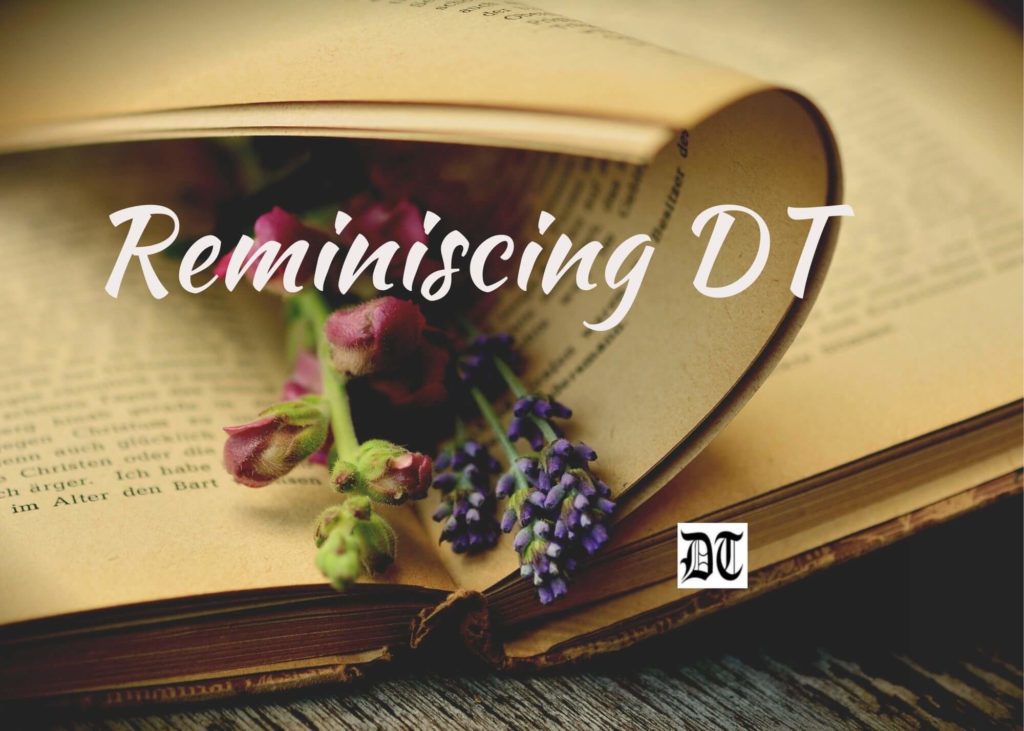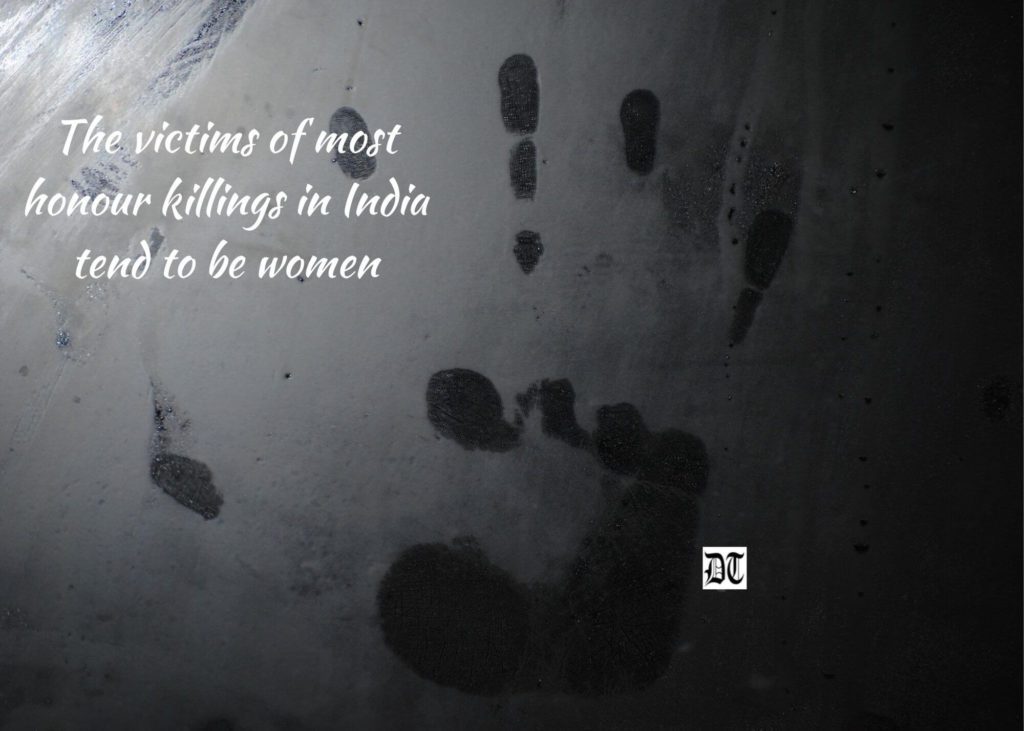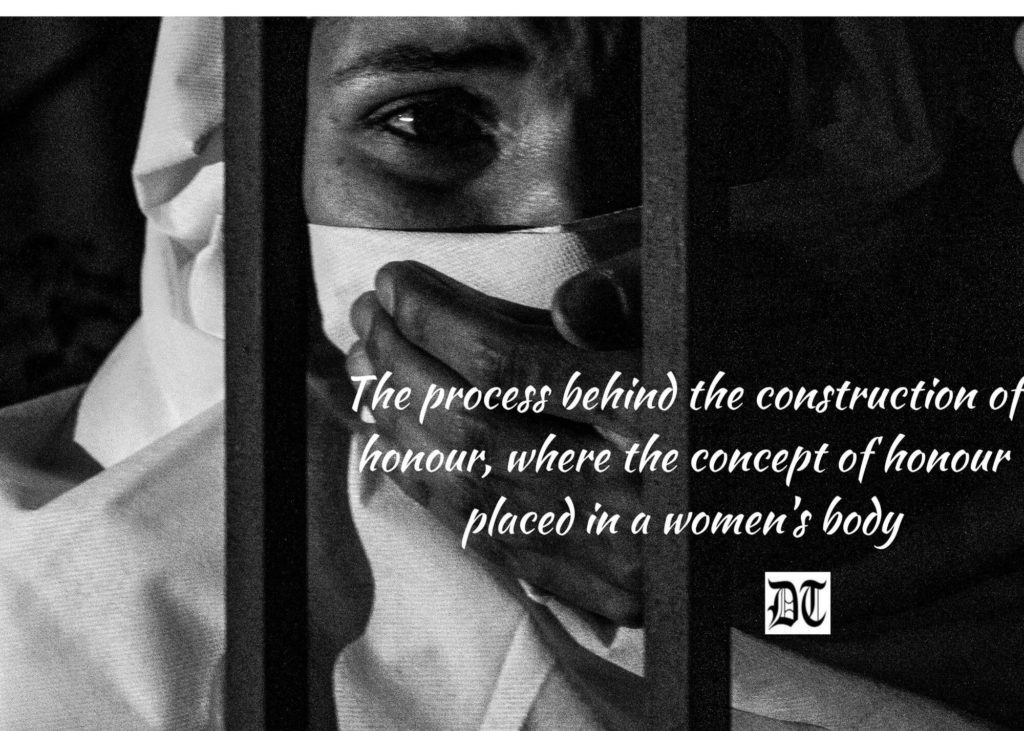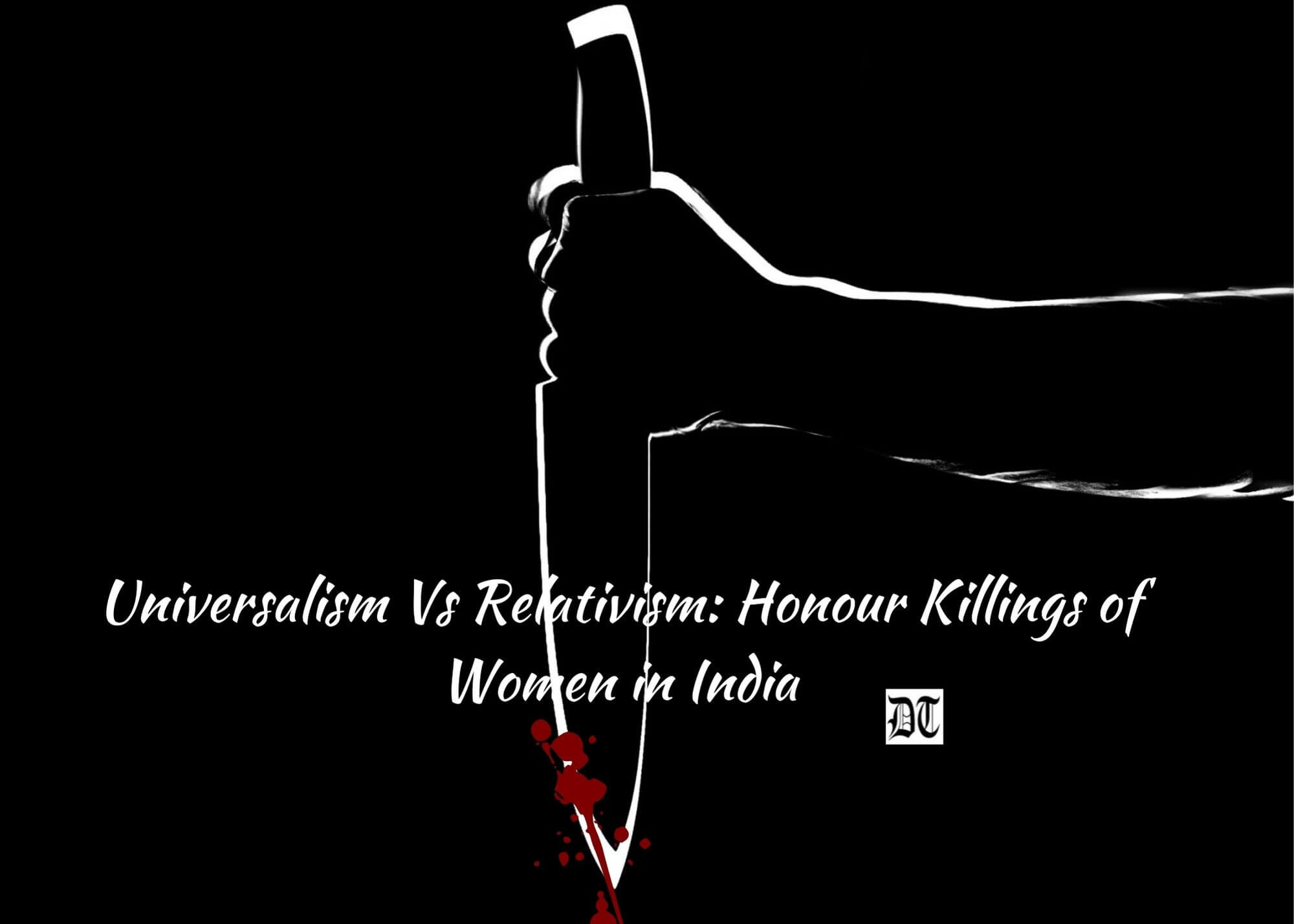Cases of honour killings represent an old tussle between universality of human rights and particularity/relativism – in this case, particular. Against this background, this article critically examines the role of universal human rights norms to protect the victims of particularity (in this case murdered women). It also examines the concept of cultural relativism and universalism and their influence of gender-based violence, especially in the cases of honour killings, in North India. Norway-based Amit, our Editor-at-Large, takes a hard look at the honour killings from the human rights perspective, in this in-depth article, as part of the special feature on International Women’s Day, exclusively for Different Truths.

There is a rising waves of honour killings against women in India. Their murders are often justified in the name of culture by their parents/relatives, superficially reflects the tension between traditional and modern values. However, at deeper level, cases of honour killings, represent an old tussle between universality of human rights and particularity/relativism – in this case, particular.
Against this background, this article critically examines the role of universal human rights norms to protect the victims of particularity (in this case murdered women). I will also examine the concept of cultural relativism and universalism and their influence of gender based violence, especially in the cases of honour killings, in North India. In addition, I will argue for an approach where tension between universality and particularity/relativism can be reconciled.
The establishment of the United Nations and enactment of universal human rights regime, in 1945, has empowered an individual to challenge against the atrocities committed by its State. In course of the time, the universalistic idea of human has spread all over the world. Main components of these ideas were: all human being, by virtue of their common humanity possess dignity; certain human rights are fundamental, interdependent, and inalienable and cannot be overridden by cultural and religious tradition (Donnelly 1989:55). United Nations Charter (1945) confirmed and affirmed the universal respect, protection and promotion of human rights and fundamental freedom without any distinctions of race, sex, language, or religion [Article 1(3) and 55].
On the other hand, the universality of human rights is being challenged by cultural relativist and by those who see human rights with limited applicability. For the purpose of this article, next section will elaborate the concept of universalism in relation to relativism.
The idea of universalism holds the view that owing to the underlying human unity, which entitles all individuals, regardless of their culture, holds certain basic minimal rights, known as human rights. Traditionally, Universalist has based their support for universal human rights on three major jurisprudential theories – the natural law theory, the theory of rationalism, and the theory of positivism. Later on theories on the human capabilities provided philosophical grounding for universal human rights (Donnelly, 1989:6).
Conversely, idea of universalism owing to its conceptual confusion has been termed as ‘elliptical notion’ (Alston 1987, cited in Brems, 2001:1). However, Donnelly malleable approach, what he calls normative universality, is closer to full universality where the formal conception of universality went beyond the signing of the human rights treaty by the states (2007:79).
Interestingly, insisting on the necessity to strengthen the multicultural aspect of human rights, Bream, stresses that universality concept must include cultural and ideological diversity to enrich the universalism of human rights. Furthermore, she says that “human rights in their current shape are not sufficiently multicultural…to be universal human rights must incorporate non-western elements (2001:1)”.
Throughout this article ‘relativism’ and particularism is used in connection with each other. Relativism is a specific practice might be relative to a specific context whereas Particular is the case of values (universal/particular values) that something is particular to a specific context.
The Oxford definitions of “relative” are: “Arising from” depending upon, or determined by, relation to something else or to each other” and “constituted, or exiting, only by relation to something else; not absolute or independent.” For example, human rights are culturally relative to the extent that they arise from, are determined by particular culture (Donnelly, 2007:281).
‘Cultural relativism’ is a theory which asserts that there is no absolute truth, be it ethical, moral, or cultural, and that there is no meaningful way to judge different cultures, because all judgments are ethnocentric (Gellener cited in Zechenter, 1997:323).
Underlying Tension between Universalism and Relativism
The universal foundation of human rights are under strict scrutiny and has been challenged by the proponents of cultural relativism especially those (mainly Asian view) who believe that universal human rights can be modified to suit to the particular culture. To human rights relativist to apply universal human rights norms are impossible to defends in diverse world and are no more than a “Western concept with limited applicability” (Pollis and Schwab 1979, cited in Zechenter, 1997:322).
Human rights to be universal in real sense, in terms of worldwide acceptance, and for its effective implementation at national and local level, there have to be minimum consensus on certain human rights norms.
Explaining the conflict between universality and particularity, Xiaorong Li stresses, a value may be understood as culturally specific by people who think it is valid only within certain cultures. He further emphasises, ‘No one imagines that human rights will be fully protected in societies that are ravaged by violent conflict…where people segregated by class, caste system, or cultural taboos (2001:470).
However, he suggests, ‘to acknowledge that the prospects for effective implementation of human rights differ according to circumstances is not to legitimise violations under unfavorable conditions, nor is it to deny the universal applicability of human rights (Ibid).
Subsequently, An-naim seem concerned about the weakness of legitimacy of human rights standards and suggests ‘it’ must be addressed in order to enhance the promotion of human rights in that society (1990:317). However, An-naim, more or less, does not deny the applicability of existing human rights instruments (Ibid).
The proponents of this view suppose (Cultural relativism) that the validity of human rights can only be assessed in an intercultural conversation where certain belief or assumptions are commonly shared and not open to scrutiny.
Supporting this view one of the key drafter of UNESCO, Jacques Martin recalled: that so long as people’s view in faith or philosophy differ, there are bound to be conflicts regarding interpretation and justification of rights (cited in Lee, 2011:19).
Whereas, Ignatieff (2001:68) believes that, human rights is only universal moral vernacular that validates the claims of women and children against the oppression they experience in patriarchal and tribal society; particularly against arranged marriages [he failed to differentiate with forced marriage], purdah, civic disenfranchisement, genital mutilation, domestic slavery, and so on- that ratified by the weight and authority of their cultures.
Nonetheless, conciliatory approach has been taken by Universalist and relativist, while dealing with major human rights abuses of world concern. In this connection, an intercultural conversation is taking place where believer of different faith are seem agreed to condemn issues of genocide, slavery, racism. In such a conversation, as Xiorong Li says, ‘people may revise or reinterpret their old belief based on public reasoning. The plausibility of such a conversation suggests a way of establishing universal validity; that is, by referring to public reason in defense of a particular conception or value (1996:407).
However, the successful international, national and local implementation of human rights cannot be achieved without reconciliation between universalism and cultural relativism. Nevertheless, unless conflict exits between two these views, as Goodhart argues, “If human rights are not universal then their theoretical justification is undermined. By the same token, Xiaorongli (1996) says, “if the concept of human rights can survive the scrutiny of public reason in such [Asia] a cross-cultural conversation, its universal validity will be confirmed.”
Interestingly, American Anthropological Association (1947:543) asserts, ‘since an individual realises his personality through his culture, hence respect for individual difference entails a respect for cultural difference…and no consideration of human rights can be adequate without taking into account the related problem of human capacity thus declaration [Universal Declaration on Human Rights] must embrace and recognise the validity of many ways of life’.
Discussion in this section was limited to the debate between universalism and relativism. The influence of above debate very much shape and guide the discussion on gender based violence against women especially in the cases of honour killings in North India. The next section will place this discussion in more concrete manner highlighting the cultural/values justification of honour killing cases in India.
What is Honour Killing?
For the purposes of this article, I will be defining honour killings as those murders that occur when a person (or persons) transgresses norms imposed by her/his community in the name of preserving honour as culturally prescribed. These norms may be with regard to sexual autonomy, marriage, religious conscience, caste, property, etc, all of which construct honour.

Honour killings typically involve the murder of a young woman who has “violated” notions of family “honour” and “purity.” Such “transgressions” may involve anything from eloping with a lover, who is not accepted by her family to rejecting an arranged marriage to simply wearing revealing clothing in public (Ghosh, 2013). Families gain and lose honour through money, power, and improper behaviour of women; emphasis on family honour is central to the Indian social framework since the family still constitute a very potent force in the social structure (Vishwanath and Palakonda, 2011: 386).
The victims of most honour killings in India tend to be women, who is the repository of family honour and the greatest threat to this honour lies in the women’s body, conduct due to her reproducing and procreating capacity; the whole clan and community are the co-sharer of this honour as blood ties of the family extend to them (Chowdhary 2007, cited in Vishwanath and Palakonda, 2011:386). By choosing her own husband in defiance of her family’s wishes, a young woman in India is “seen as polluting not just herself but also her domestic group (Mehta, cited in Ghosh, 2013)”.
Cultural Understanding of Honour Killing
In classical Latin, the word ‘honour’ meaning – honour, honoris, is associated with the idea of respect, prestige, esteem, and connected with the existence of public dignities and offices (Baroja, 1996 cited in Dagon, 2014:367). Seen from this perspective, honour has gender neutral meaning and not compatible with violence or killing. The concept of honour that inspires violence has a collective aspect, shaped and constructed by a gender specific formula (Dagon, 2014:367). In this gender specific conceptualisation, men’s honour and collective honour of the group is dependent on the proper behaviour of female relatives and, therefore, on the control of female sexuality, which in some cases ultimately led to the honour killing.
India has registered an almost 800 per cent rise in the number of killings in the name of “honour” reported in 2015, according to figures presented in the Parliament. Police registered 251 cases of honour killings, in 2015, compared with 28 cases reported, in 2014, when the government began counting them separately from murder. The surge could partly reflect more willingness by people to report such crimes, which many still consider just punishment for women and men who defy communal customs by marrying outside of their religion, clan, or caste.
The exact number of honour killing is difficult to decide because such killings are frequently disguised as “accidents” or even “suicides”, rendering it impossible to accurately gauge the number of such incidents. In India, such murders typically occur in the northern regions of the country (People Vigilance Committee on Human Rights, 2011). However, 80 per cent of honour killings in the state of Haryana occur over women marrying without their family’s consent (Shakti Vahini, 2013). In 2000, the United Nations (UN) estimated that there are around 5,000 honour killings, every year, worldwide (Chesler, 3:2010). In India, in 2012, there are 900 reported honour killings in Haryana, Punjab and Uttar Pradesh, while additional 100-300 honour killings took place in the rest of the country (Chesler and Bloom, 45:2012).
Who is Responsible for Honour Killings?
Honour killing in India often led by village panchayat (caste-based village council in north India).These village panchayat, though not directly involved in the killings, are guilty of providing sanctity to such crimes. Currently, honour killings in India are perpetrated most notably by the khap panchayats, (caste based village council) in states like Haryana, Uttar Pradesh, Punjab, parts of Bihar, and Rajasthan and katta panchayats, in parts of Tamil Nadu.
Despite their legal and official status, village panchayats in some parts of the country are heavily dominated and coerced by these informal social systems like the khap panchayats (Kachhwaha, 2011:298). Khap panchayats are said to adjudicate on matters related to social transgressions, marriage, property rights, inheritance, and caste issues (ibid: 298-99). The development of non-state parallel systems of adjudication has, especially after Indian independence, resulted in the constructions of gender and sexuality, tradition and honour (Vishwanath and Palakonda 2011, cited in Annavarapu, 2013:130). In many incidents of honour killings, the local panchayat is believed to have sanctioned – or even explicitly ordered – such killings (Ghosh, 2013).
The Times of India reported that the panchayat declared before the court: “The main culprits [behind] honour killing are not the representatives of khaps but the relatives of couples, when they cannot resist the social pressure of the locality. Such ‘love marriages’ being socially, customarily and traditionally prohibited relationships against the age-old customs and traditions of marriages, their relatives and friends cannot withstand the hostile taunts of their companions and [the] public at large and this aspect forces them to commit such heinous crime of killing the couple on the plea of saving the honour of their families in the eyes of the villagers.
Domestic and International Legal Safeguard
In India, the right to marry is a component of “right to life” as enshrined by Article 21 of the Constitution of India. It is not simply the “right to marry”, but it is the right to marry out of choice. In Lata Singh vs State of Uttar Pradesh (2006, SC 2522), the Supreme Court observed that, “This is a free and democratic country, and once a person becomes a major he or she can marry whosoever he/she likes”. The Honour crime also violates 14, 15, 91(f) of the Constitution of India. Unfortunately, in contemporary India honor crime remains undefined thus most of the culprit easily get away with the crime (Kachawaha, 2011:300).
In relation to free will and choice, the Universal Declaration of Human Rights (hereafter UDHR), in its preamble asserts the dignity and worth of human person and equal rights of women and men while affirming the freedom from fear and want. Article 3 says that everyone has the right to life, liberty and security while article 5 prohibits torture and inhumane treatment. Article 8 guarantees effective remedial procedure in national justice system for the violation of human rights. Article 12 prohibits arbitrary interference with privacy, family, home or correspondence including attack on honor and reputation. The act of honor killing violates all aforementioned rights. The UDHR also espouses the right to protection of law against such attacks by Article 30.
Apparent is the fact that the human right to life is violated by honour killings. In next section, I will examine the role of traditional values and how does it justify killing people for the sake of so-called values/honour? In addition, I will highlight the inherent conflict between universalism and particularism.
Universalism and Particularism
The very notion that universal human rights are applicable to all human beings irrespective of any other consideration is important here. While the idea of “marriage” is a universal one, the terms and conditions of its execution and substance are culturally specific. A liberal view of marriage would consider it to be a matter of individual choice and freedom, whereas some communities – as in this case – consider it to be tied to ideas of lineage, honor and religion. (Annavarapu, 2013:130).
The “aspirational” idea behind the documentation of universal human rights is put under severe duress owing to the recurrent and recalcitrant presence of honor killings. In such cases the idea of “individualism” and choice” is challenged by the prevalence of informal social systems which rely on ideas of “culture” – however contentious that term may be. The very fact that honor crimes stand at the confluence of “competing spheres of legal subjection simultaneously – customary laws, family law, criminal law and international law – makes this a very challenging case to study” (Baxi et al, 2006:1240).
Honour killings often occur owing to the fact that certain individuals have flouted the society’s normative stance regarding matrimony. In India, marriages occur for a variety of reasons ranging from basic notions of “carrying forward the bloodline” to pecuniary motives like property acquisition to the more contemporary notions of love and exercise of choice. In rural India, the notion of “proper” marriages is intertwined with adhering to certain norms in society which when disregarded cause disrepute to the family and kin of the “accused”.
Honour Killings and Punishments
As is indicated by cases of honour killings in this article, one of the most prominent reasons to execute an honour killing is when persons do not adhere to the traditional norms of society and marry out of choice vis-à-vis out of consent by the elders in the village. This is said to bring “dishonour” upon the family of the person engaging in such activity. Punishments can be fines (nominal or substantial), ritual expiation, public humiliation (ranging from blackening of face to dipping victim’s nose in human urine), forcing her/him to host a feast for the village, beating up, and/or banishment from the village including the murder (Yadav, 2009:17 ).

The friction between universalism and cultural relativism is manifest in the case of honor killings and honor crimes by khap panchayats. In my opinion, it is not just the act of the murder of “erring” individuals but it is the process behind the construction of honour, where the concept of honour placed in a women’s body, and it is being protected by social custodian (in this case village council) by killing/restricting those who breached the boundary of honor. Here, the liberal notion of “individual agency” is in direct contrast with the notion of collective social agency and stringent norms.
Arguing that human rights are indeed natural rights and inherent in the fact that one is born a human being, Jack Donnelly (1984, 2007) points to the universality of certain basic human rights as being both a positive and a normative issue. In addition, Elizabeth Zechenter while analysing “cultural relativism” (1997) also supports this claim of Donnelly’s that relativism and cultural particularism can be abused by states in order to engage in unethical practices against people. In the case of honour killings by khap panchayats, one can see that if adherence to a particular cultural practice is imposed in the name of “tradition”, the attack is not just on the individuals but on the institution of individual choice based on a conscious agency protected by the tenets of a Rule of Law which is assumed to be based on universal notions of justice and fairness (Annavarapu, 2013:131).
However, if we take the standpoint of relativism, it becomes contingent on the cultural ethos and values of that particular community. This is in violation of human rights as understood as something not dependent on an external source or not being a privilege – an argument that Donnelly (1982:56) has made, while trying to justify the origin of contemporary human rights as being an exclusively western one.
There is need for a universal human right to guarantees of culturally relative fundamental rights as enshrined in the constitution of each state, if we take the state to be the political community that we are concerned with. Therefore, the argument of cultural relativism in terms of honor killings would be deemed invalid by the universal human right to have constitutional rights protected (Annavarapu, 2013:131).
Baxi (2006:1245) has observed that the rise in “honour killings” is a reaction against the construction of a modern notion of justice and law in which the attempt is to inscribe tradition in clear boundaries that can be attributed to the authenticity of an “Indian culture”.
Involvement of International Community
Unless the international community is involved using the crutch of a universal human right, which is not mired in controversies surrounding its content, the seriousness of honour killings will be under severe doubt, which will make it harder to prevent future incidents in this regard. It becomes hard to justify the universality of a right that is particular in terms of substance. If the human right is specific on how it defines “free choice”, the relativists can raise questions pertaining to the origin of this idea of free choice since the substance of the right is articulated and that substance is cultural. As Baxi correctly observed that the notion of the Rule of Law in relation to the complexities inherent in a postcolonial terrain such as India where the tension between the forces of “tradition” and “modernity” is evident in informal systems such as khap panchayats, and where state itself constitutive of the dominant social relations and therefore limited in its capacity to mediate social conflict (2006:1245).
It is from such patriarchal cultural attitude (reinforced by caste, class inequalities and States inability to protect the honor killing victims) defense that the Southeast Asian theory of human rights has arisen whereby the culture of human rights has to yield to the so called demands of a so- called traditional culture.
If the ‘culture’ defense is totally accepted as in the case of Khap Panchayats, the human rights enterprise would die. Culture and the culture of human rights have to be reconciled (Dhavan 2010). However, I am totally agree with the statement of Department of Justice, Canada, that says, while honour as a cultural justification for killing is in keeping with the mindset of certain groups, this motive cannot be attributed to entire populations….The existence of cultural norms and practices does not reduce individual responsibility except in those rare occasions where there is significant individual psychopathology.
References
Adami, R (2012), “Reconciling Universality and Particularity through a Cosmopolitan Outlook on Human Rights,” Cosmopolitan Civil Societies Journal, Vol 4. No.2
American Anthropological Association (1947), “Statement on human rights” American Anthropologist, Vol.49, No. 4, pp.539-543
An-naim, A (1990), “Human Rights in the Muslim World: Socio-Political Condition and Scriptural Imperatives,” In Patrick Hayden (Eds.) The Philosophy of Human Rights (pp. 315-335) St. Paul, Paragon House
Annavarapu, S. (2013), “Human rights, honor killing and Indian law Scope for rights to have right”, Economic and Political Weekly, Vol. XL viii No. 50
Basham, L (1987), The Wonder that was India, accessed on 23 Nov. 2014, available at at_was_india_volume-2__s._a._a._rizvi__rupa__co._2001.pdf
Baxi, Pratiksha, Shirin M Rai and Shaheen Sardar Ali (2006): “Legacies of Common Law: ‘Crimes of Honour’’ in India and Pakistan”, Third World Quarterly, 27: 7, 1239-53.
Brems, E (2001), “Human rights: Universality and Diversity” International Studies in Human Rights, vol. 66, Pub by Martinus Nijnoff
Chesler, P. and Bloom P (2012), “Hindu vs Muslim Honor Killings”, Middle East Quarterly, Summer 2012: 43-52.
Constitution of India, accesses on 23 Nov. 2014, available at http://lawmin.nic.in/coi/coiason29july08.pdf on 23 Nov. 2014
Dogan, R (2014), “Different Cultural understandings of Honor that Inspire Killing: An inquiry into the Deferment’s perspective”, Homicide Studies, 18:363, 2014
Donnelly, J (1984), “Culture relativism and universal human rights”, Human Rights Quarterly, vol. 6, no. 4, pp.400-119
Donnelly, J (2013), “An overlapping consensus on human rights” in Universal Human Rights in Theory and Practice, Cornell University Press, New York
Donnelly, D (2007), “The relative universality of human rights”, Human Rights Quarterly, vol.29, no-2, pp.281-306
Donnelly, D (2008), “Human rights: Both universal and relative” (A reply to Michael Goodhart) Human Rights Quarterly, vol. 30, no.1, pp.194-204
Goodhart, M (2008), “Neither relative nor universal: A response to Donnelly”, Human Rights Quarterly, vol.30, no. 1, pp.183-193
Hetzel and Weymans (2012), “From substantive to negative universalism, Lefort and Habermas on legitimacy in democratic societies”, Thesis Eleven, 108: 26
Ignatieff, M (2001), “Human rights as a politics and idolater” Princeton University Press, New Jersey
Kachwaha, K (2011), “Khap Adjudication in India: Honoring the Culture with Crime”, International Journal of Criminal Justice Science, vol. 6 June-July Dec. 2011
Kucuradi, I (2008), The question of “Universality versus Particularity?” In the light of epistemological knowledge of norms, available at http://archive.unu.edu/dialogue/papers/kucuradi-s5.pdf
Lee, M (2011), “Religion, human rights and the role of culture”, The International Journal of Human Rights, 15:6, 887-907
Li, X (1996), “Asian Values and the Universality of Human Rights”, In Patrick Hayden (Eds.) The Philosophy of Human Rights (pp. 397-408) St.Paul, Paragon House
Martin, Jacques (2011), “Introduction’, in Human Rights: Comments and Interpretation (A Symposium edited by UNESCO, July 1948) London.
Nussbaum, M (2001), “The Central capabilities in Creating Capabilities”, Cambridge.
On, S (2005), “The Relative Universality of Human Rights: An Assessment”, Perspective on Global Development and Technology, vol. 4, issue 3-4
Vishwanath, J. and Palakonda S (2011), “Patriarchal Ideology of Honor and Honor Crimes in India”, International Journal of Criminal Justice Sciences, vol. 6, Issue 1-2: 386-95.
Yadav and Bhupendra (2009), “Khap Panchayats: Stealing Freedom?”, Economic & Political Weekly, Vol XLIV, No 52: 16-19, 26 December.
Yasuaki, O (2000), “In quest of Inter-civilizational Human Rights – Universal Vs. Relative, Human Rights Viewed from an Asian Perspective”, Asia Pacific Journal on Human Rights and the Law, 1 35-88.
Zechenter, E (1997), “In the name of Culture: Culture relativism and the abuse of the individual” Journal of Anthropological Research, vol. 53, pp.319-347
Web sources
http://indiatoday.intoday.in/story/What+honour+It’s+cruel+murder/1/91293.html
http://pldindia.org/wp-content/uploads/2013/03/Submissions-by-PVCHR.pdf
http://foreignpolicyblogs.com/2010/07/09/a-mindset-change-to-stop-honor-killings/
http://timesofindia.indiatimes.com/india/Cabinet-sends-bill-on-khaps-to-GoM/articleshow/6144531.cms
http://sites.tufts.edu/anth27h/honor-killing-today/
http://nlrd.org/wp-content/uploads/2013/01/LAW-COMMISSION-RECOMMENDATIUONS.pdf
http://nlrd.org/wp-content/uploads/2013/01/LATA-SINGH-CASE.pdf
http://www.un.org/en/documents/udhr/
http://www.un.org/apps/news/story.asp?NewsID=33971#.VF_kyfnF-vM.
Picture design by Anumita Roy, Different Truths






 By
By
 By
By